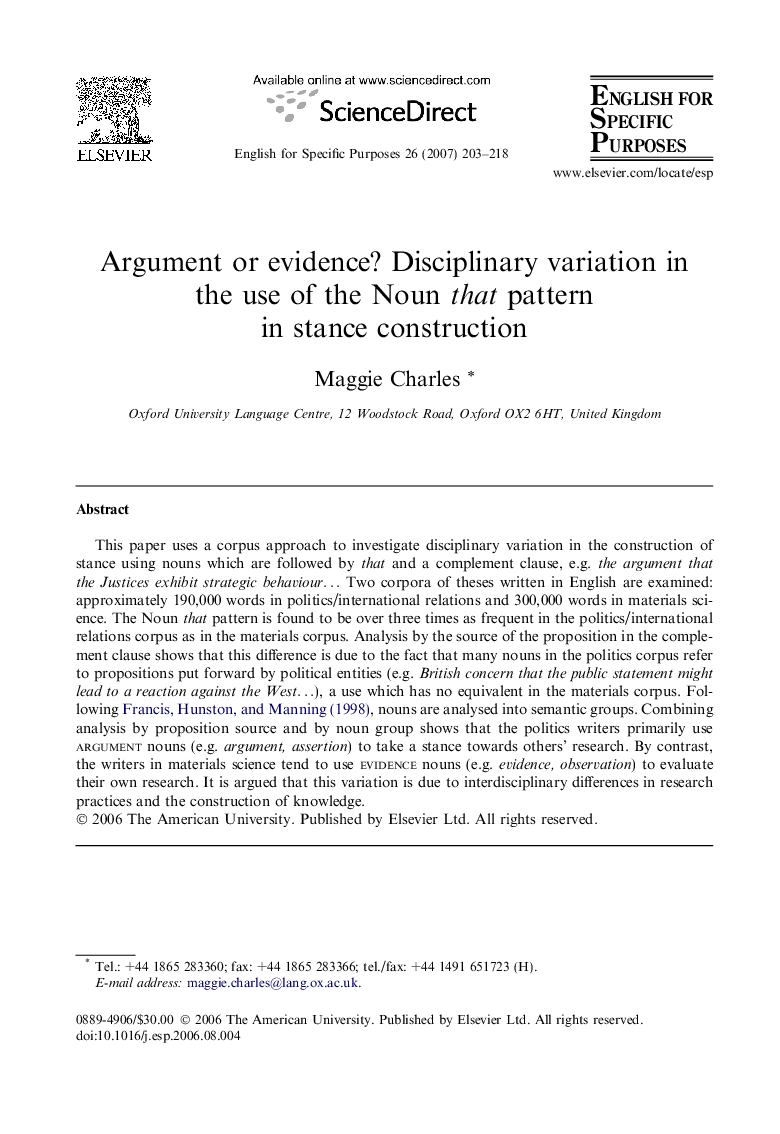| Article ID | Journal | Published Year | Pages | File Type |
|---|---|---|---|---|
| 355682 | English for Specific Purposes | 2007 | 16 Pages |
This paper uses a corpus approach to investigate disciplinary variation in the construction of stance using nouns which are followed by that and a complement clause, e.g. the argument that the Justices exhibit strategic behaviour… Two corpora of theses written in English are examined: approximately 190,000 words in politics/international relations and 300,000 words in materials science. The Noun that pattern is found to be over three times as frequent in the politics/international relations corpus as in the materials corpus. Analysis by the source of the proposition in the complement clause shows that this difference is due to the fact that many nouns in the politics corpus refer to propositions put forward by political entities (e.g. British concern that the public statement might lead to a reaction against the West…), a use which has no equivalent in the materials corpus. Following Francis, Hunston, and Manning (1998), nouns are analysed into semantic groups. Combining analysis by proposition source and by noun group shows that the politics writers primarily use argument nouns (e.g. argument, assertion) to take a stance towards others’ research. By contrast, the writers in materials science tend to use evidence nouns (e.g. evidence, observation) to evaluate their own research. It is argued that this variation is due to interdisciplinary differences in research practices and the construction of knowledge.
